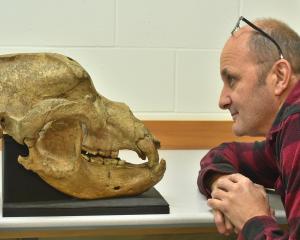The University of Otago could be about to gain a large slice of $35 million in research funding a year.
The university is involved in ''most'' of the eight shortlisted projects selected as possible Centres of Research Excellence and could benefit from confirmation four existing centres - based at Auckland, Massey and Lincoln universities - have missed out. The university is not host to any of the seven existing government funded centres - meaning any success it has will result in new funding.
Deputy vice-chancellor, research and enterprise Richard Blaikie said yesterday it was ''strongly engaged in most of the eight shortlisted applications, some of which will be hosted or co-hosted by Otago University if successful''.
He could not reveal much, because the successful bids were yet to be selected, but said five bids were submitted with Otago University either the host or co-host - without saying how many had made the shortlist.
''It would be very nice to be named as host for one or more of these,'' he said.
The Otago Daily Times understands that two Otago-hosted bids, involving aspects of advanced physics research, and of ocean science, are included in the shortlist.
And it is also understood a proposed neuroscience research centre, to be jointly hosted by Otago University and Auckland University, is also on the shortlist.
The Allan Wilson Centre for Molecular Ecology and Evolution is also understood to be included. The centre's director, Hamish Spencer, is based at Otago University.
Some researchers believe a wind of change is blowing through the Centre of Research Excellence arrangements, which could prove positive for Otago University.
The Royal Society of New Zealand, which is making recommendations to the Tertiary Education Commission (TEC) over which bids should be successful, says on its website successful applicants would be funded for six years - from January 2015 to December 2020 - subject to a mid-term review in 2017. The Royal Society would make its recommendations to TEC early next month after it finished site visits for shortlisted centres this month.
Confirmation four existing centres did not make the shortlist has come in for criticism from the Labour Party, Tertiary Education Union and Federated Farmers, which all questioned why funding for the centres was being cut.
A TEC spokeswoman responded saying the funding was ''fully contestable'' and competition was ''fierce'' among the 27 applicants.
''That means current [centres] needed to reapply and all applications were considered using the same criteria.
''The short-listing is in no way a comment on the previous performance of the existing [centres] as this was not part of the selection criteria,'' she said.
TEC expected to announce successful candidates in May.
Budget 2013 increased the fund by 10%, bringing the total amount of annual funding for the centres to just under $35 million.











